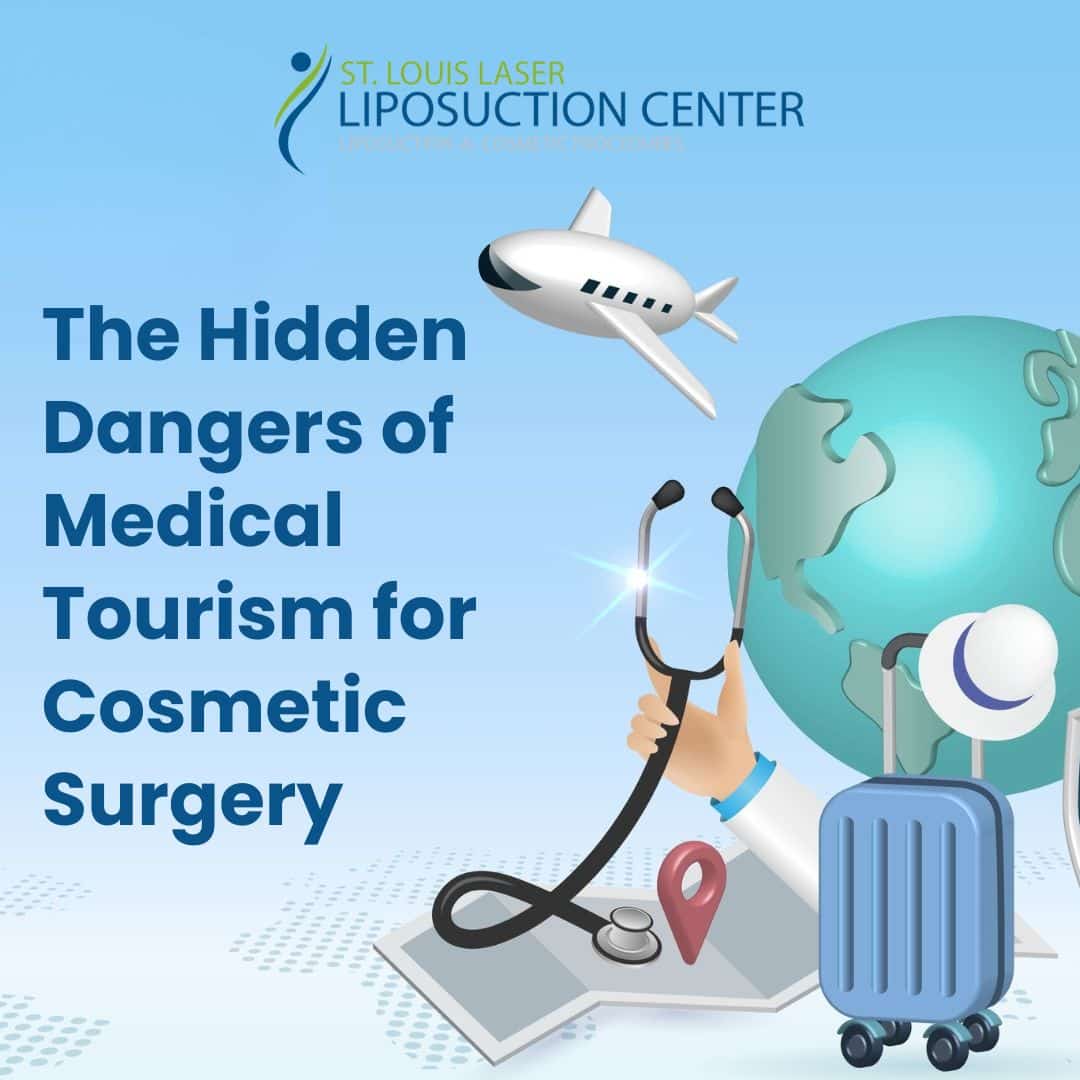In the quest for beauty and youth, many Americans are venturing beyond borders to undergo cosmetic surgery, attracted by lower costs and shorter wait times. However, this trend of medical tourism, especially to countries like the Dominican Republic, has unveiled a series of grave risks and consequences. According to a report from the Centers for Disease Control and Prevention (CDC), from 2009 to 2022, ninety-three U.S. citizens have died as a result of cosmetic surgery in the Dominican Republic, with over half of these deaths occurring after 2018, reflecting the increasing popularity of overseas cosmetic surgery. Dr. Wright, a renowned expert in St. Louis liposuction and cosmetic surgery, emphasizes the importance of understanding these risks and encourages individuals to seek treatment from reputable local experts. This blog delves into the perils of medical tourism for cosmetic procedures and underscores the critical need for thorough research and consultation with trusted healthcare providers.
The Alarming Trend of Medical Tourism
The allure of medical tourism is undeniable—lower costs and immediate availability of services. However, these benefits come with significant risks. Recent CDC data highlights a disturbing increase in the number of U.S. citizens experiencing severe complications, including death, after undergoing cosmetic surgery abroad. Between 2009 and 2022, there were 93 reported cases of U.S. citizens who died following cosmetic surgery in the Dominican Republic, with a sharp increase observed in recent years.
The fatal cases examined involved liposuction, and 92% involved gluteal fat transfer, a procedure commonly known as a Brazilian butt lift. All but one of the Americans who died were women, and their median age was 40, often the result of embolic events, such as fat or venous thromboembolism, exacerbated by factors like obesity and undergoing multiple procedures in a single operation.
Understanding the Risks
The lack of stringent medical standards and regulations in some countries can lead to higher rates of complications. The CDC’s findings emphasize the importance of considering patient and operative risk factors, including the high proportion of patients who died having risk factors for embolism, such as obesity, and having multiple procedures performed during the same operations.
Increased Complication Rates
The lack of stringent medical standards and regulations in some countries can lead to higher rates of complications. The U.S. Embassy’s records highlight a stark increase in fatalities, with embolic phenomena being a leading cause of death. These complications are frequently associated with procedures like liposuction and gluteal fat transfers, which carry inherent risks that require meticulous surgical expertise and post-operative care to manage.
Lack of Comprehensive Preoperative Evaluation
A detailed preoperative evaluation is crucial to mitigate risks during and after cosmetic surgery. However, in medical tourism, there might be an inadequate assessment of the patient’s health and risk factors. The investigations into the deaths of U.S. citizens in the Dominican Republic revealed that many had underlying conditions that increased their risk for venous thromboembolism. This factor might have been overlooked or insufficiently managed.
The Peril of Multiple Procedures
The desire to maximize the trip abroad for cosmetic surgery often leads individuals to undergo multiple procedures in one session. This practice significantly elevates the risk of complications, including severe embolic events. The CDC report underscores the danger of performing multiple cosmetic surgeries simultaneously, especially in patients with pre-existing risk factors.
Dr. Wright’s Advice: Seek Local Experts and Do Your Homework
Dr. Wright, a leading St. Louis liposuction and cosmetic surgery specialist, strongly advocates for seeking treatment from reputable, local experts. The benefits of receiving care closer to home include:
- Access to Board-Certified Surgeons: Local providers, like Dr. Wright, are often board-certified and adhere to the rigorous standards and ethics required by U.S. medical boards.
- Transparent Standards of Care: U.S. healthcare facilities operate under strict regulations that ensure patient safety and high-quality care.
- Follow-up and Postoperative Care: Proximity to your surgeon allows for easier follow-up visits and immediate attention should any complications arise.
- Informed Decision Making: Consulting with a local expert like Dr. Wright ensures that patients receive comprehensive information about their procedures, including potential risks and benefits, allowing for informed decision-making.
Making Informed Choices
Before deciding on cosmetic surgery, whether domestically or abroad, it’s imperative to conduct thorough research:
- Consult with Healthcare Professionals: Engage with your primary healthcare provider and specialists like Dr. Wright to discuss your suitability for elective surgery and understand the risks involved.
- Verify Credentials and Experience: Research the credentials, experience, and track record of any surgeon you are considering. Look for board certification and reviews from previous patients.
- Understand the Full Scope of Care: Consider the entire care pathway, including preoperative assessments, the surgery itself, and postoperative care. Comprehensive care is crucial for a safe and successful outcome.
Conclusion
The rising trend of medical tourism for cosmetic surgery presents significant risks that cannot be overlooked. The increase in reported complications and fatalities among U.S. citizens undergoing surgery abroad serves as a stark reminder of the importance of careful consideration and consultation with experienced professionals. Dr. Wright and his team in St. Louis offer expert care in liposuction and cosmetic procedures, ensuring that patients receive the highest safety and quality standards. Prioritize your health and safety above all else, and choose a trusted local expert who can provide you with the best possible care.


